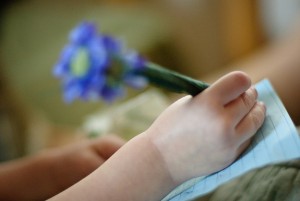What will my first speech therapy session be like with Speech Buddies?
Welcome to the joys (and challenges) of raising kids! If you made it here, you’re probably wondering about some aspect of your child’s speech and language development and wondering how to prepare for your first speech therapy session. With some 1 in 10 kids seeing a speech therapist at some point you should know 1) this is probably a lot more common then you realize and 2) speech therapists are trained to help kids overcome speech challenges…and they will overcome them.
But now it’s your turn to start getting educated about speech and language development and the practicalities of maximizing its effectiveness. This blog is a good place to start—if we do say so ourselves. It has great posts that cover a wide range of speech therapy topics. The more you know, the more empowered you are in that initial session and the more effective you can be in your partnership with your therapist. Also, as you get going with your therapist, don’t be shy to ask for clarification on anything that you want to learn more about. And ask your therapist how you, as a parent, can be directly involved in the therapy process.
Photo: Tree of Life by Nick Lee
What happens during your first speech therapy session?
1) Parent Interview:
Your therapist will have a series of standard questions such as:
- chief concern (i.e. your main reason for booking the appointment),
- who first noticed any potential speech or language challenge,
- brief medical history particularly as this relates to overall development,
- early developmental milestones,
- any prior history of speech or language evaluations or therapy,
- or family history of speech or language challenges.
After you book your first speech therapy session with Speech Buddies you’ll be given a chance to fill out a medical history questionnaire prior to your appointment. That way your speech therapist can focus on the things that really matter, like getting to know your child and exactly how to help her.
2) Screening Test Battery:
After your therapist has spent a few minutes getting to know your child, he or she will conduct one or more screening tests, based on the information you’ve supplied the therapist. The battery could take between 15 and 30 minutes, although this could vary considerably depending on what the therapist feels should be examined and how quickly your child can get through the screening materials.
3) Reporting Initial Impressions:
Your therapist will then provide one of three judgments based on what he or she has observed:
- Recommend therapy and/or a comprehensive evaluation;
- Recommend re-screening at a later date, usually when your child reaches a subsequent developmental milestone; or
- Recommend NO therapy, because the therapist believes, based on informed clinical opinion, that your child is not at risk for a speech or language disorder.
What Happens After the Initial Session?
No matter what, after the initial session, your therapist will draft a summary of the screening session, provide a recommendation (as described above), and provide rationale for this recommendation. And, if it is recommended that your child begin a therapy regimen, then your therapist will tell you the suggested frequency of sessions per week as well as intensity, or how long each session will be (e.g. one thirty-minute session per week). If it is recommended that your child be re-screened at his or her next birthday, that too will be clearly stated. And, if your child is not at risk for a speech or language disorder, you’ll also know that, along with a rationale for any recommendation provided.
Now let’s see if we can find you the perfect speech therapist! www.speechbuddy.com/speech-therapy




